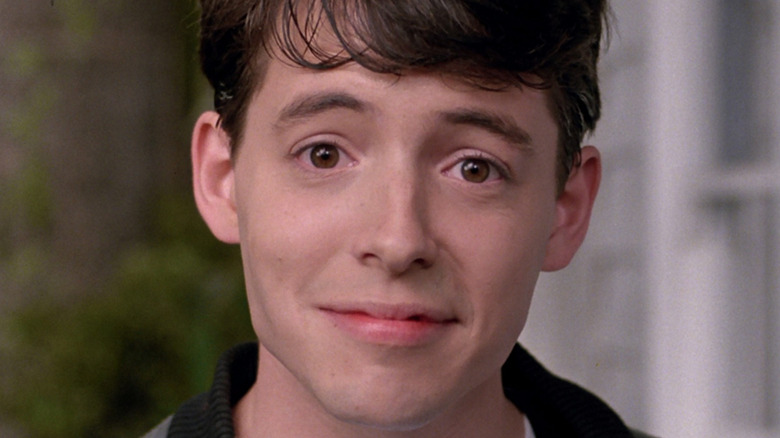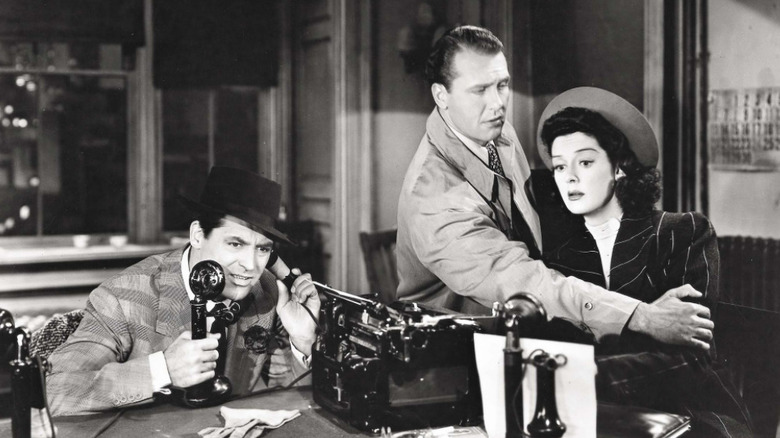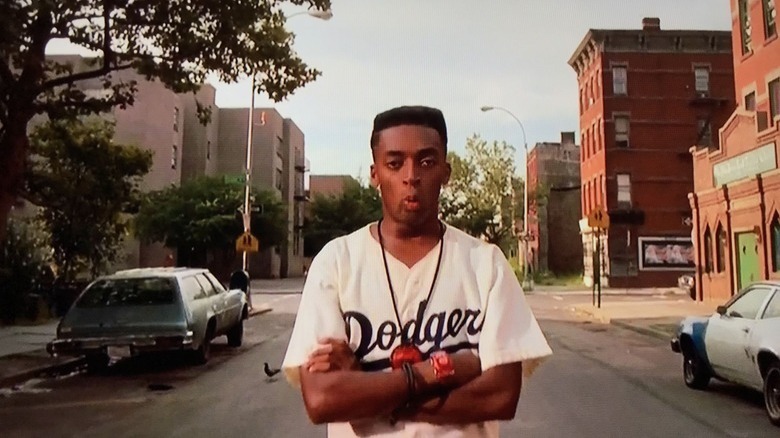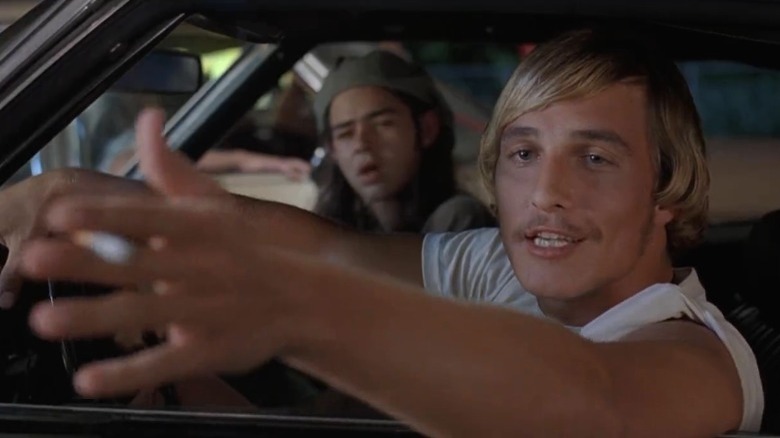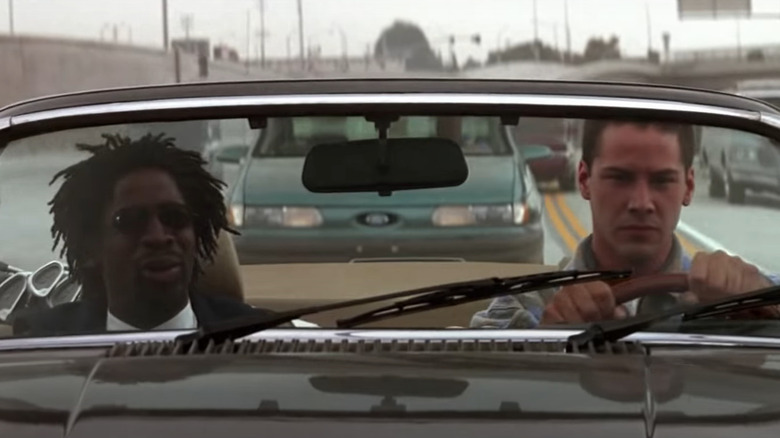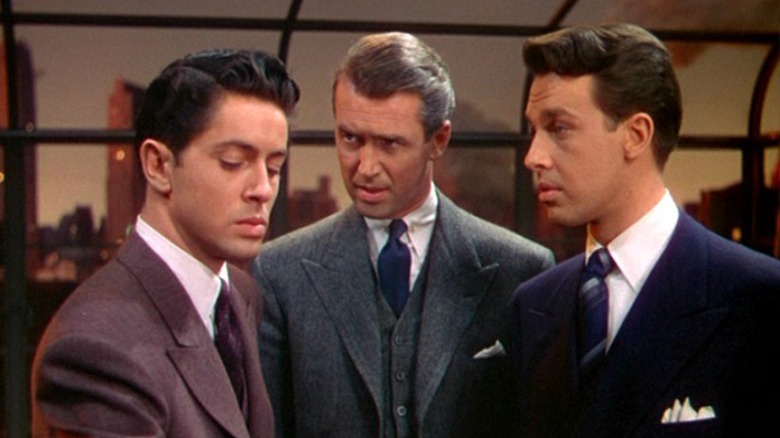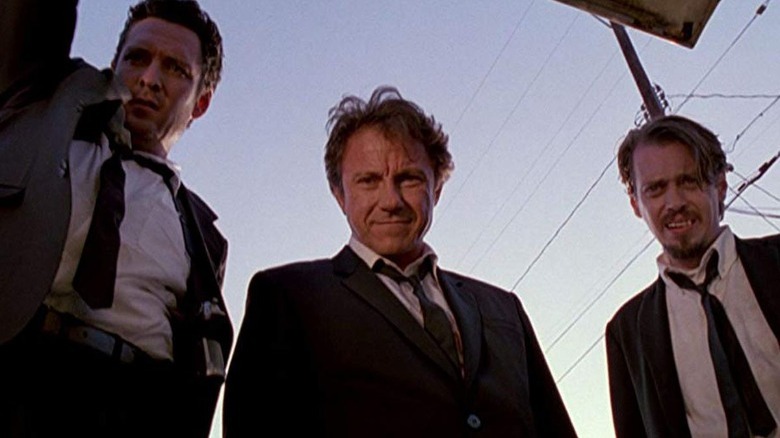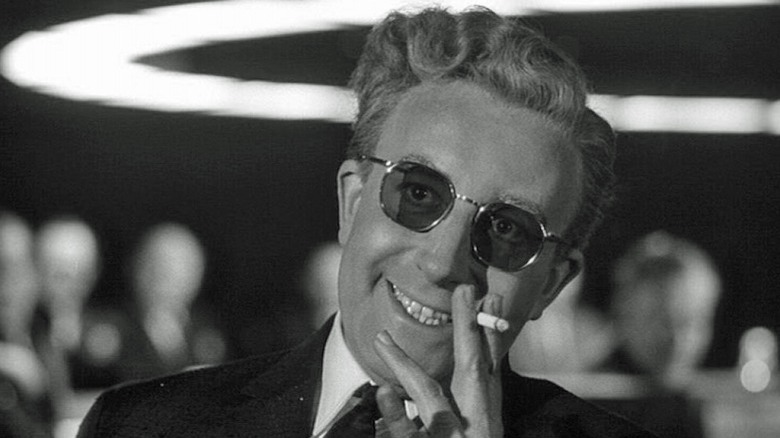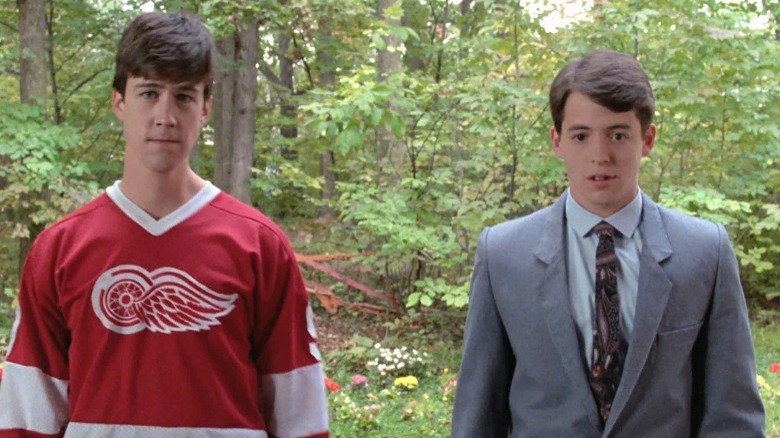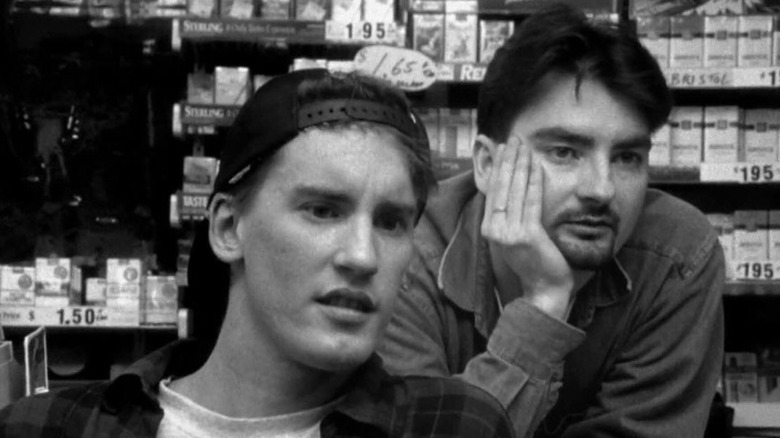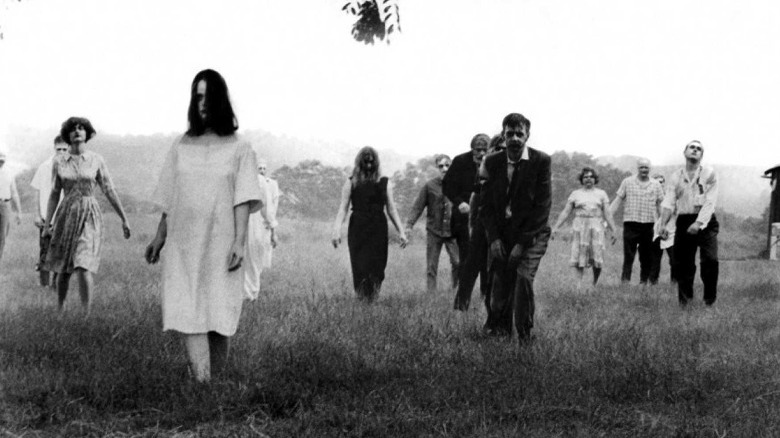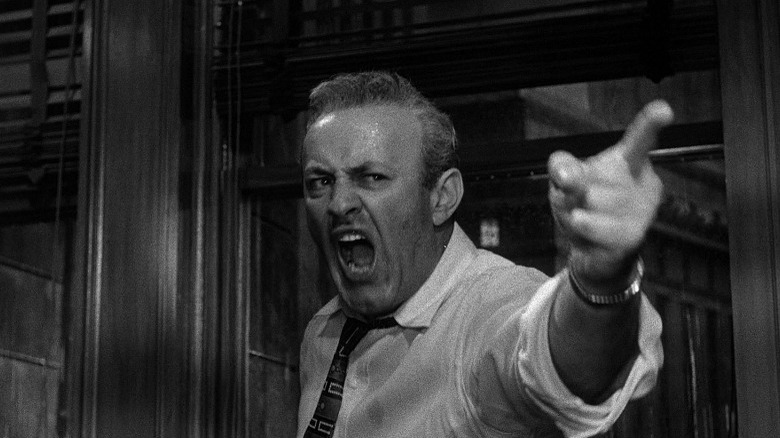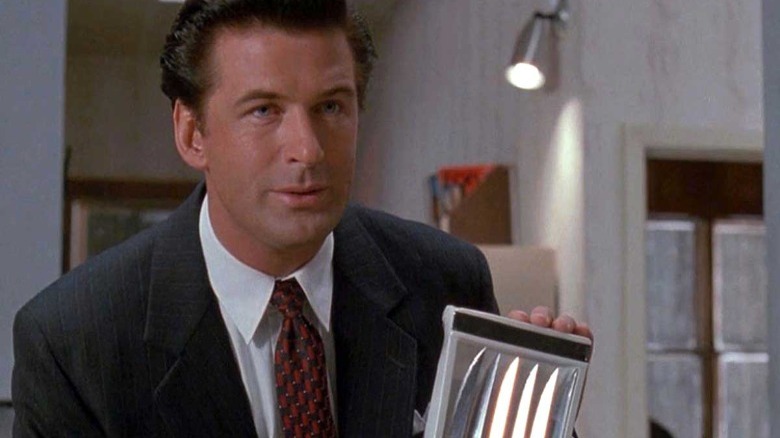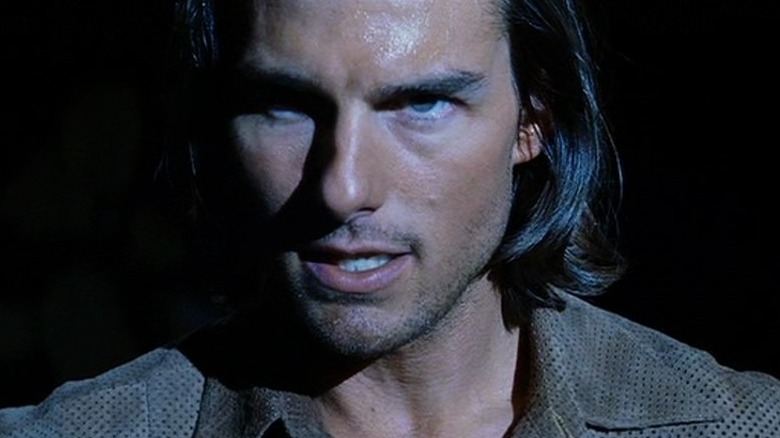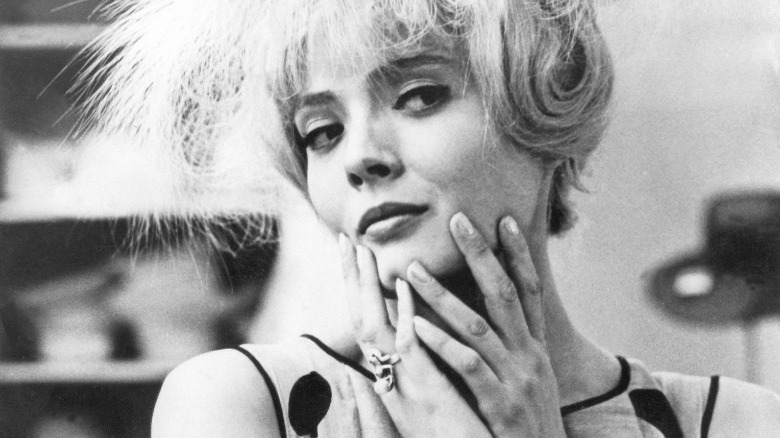Classic Movies That Are Set Entirely In One Day
Time is a strange thing, and it can be tricky to keep track of. Sure we have calendars, birthdays, gray hairs, and all other sorts of things to mark its passing. But no matter how old you are, each day of your life brings with it an immense quantity of stimuli, feelings, sensations, and events. As such, each day is a uniquely vivid experience, be it either a good one or a bad one. Maybe that's why we respond so strongly to movies that are set in a single day.
Without relying on montages, old-age makeup, or the vast influence of time's passage on a story, many great films capture the highs and lows that can elapse within 24 hours. By unfolding in quasi-real-time, they can make pulse-pounding drama out of the rhythms of everyday life and normal conversation. Alternatively, they can help us imagine what supernatural or high-octane events would really feel like by keeping us in the moment with the characters experiencing them. When done right, these movies can reach deep within us and connect us to the story by the virtue of that day-in-the-life feeling. If that sounds up your alley, here are some classic films that take place over the course of a single day.
His Girl Friday
One of the truly classic screwball comedies, Howard Hawks' "His Girl Friday" shows just how much can happen in one day, especially if you talk very fast. The film stars Cary Grant as news editor Walter Burns and Rosalind Russell as reporter Hildy Johnson — two people who love a good story and will do anything to get it. To put it mildly, they have a busy day. Walter and Hildy are divorced, and Hildy's about to remarry. In an attempt to stop her from doing so, Grant convinces her to help him cover a big story — secretly a ruse to help waylay her impending nuptials.
"His Girl Friday" is adapted from the stage play "The Front Page," and like a stage play it packs a lot of action into one location — the offices of Walter's newspaper, The Morning Post. With a breathless pace, rapid-fire dialogue, and a general sense of chaos, it's one of the most action-packed "stagey" movies of the studio era. Russell's performance is particularly notable because it was gender-flipped from a male part in the original play, allowing for some added comedic complications and two standout performances of the screwball comedy era.
Do the Right Thing
With 1989's "Do The Right Thing," Spike Lee made both a landmark statement about racial tensions and a lauded staple of the "one long day" genre. Set on a blazing hot summer day in Brookyn, the film shows a neighborhood on the brink of an explosion. The characters are constantly drenched in sweat, relying on box fans and ice cubes to stave off the heat. That hellish atmosphere adds to the natural tension of the story, making it feel like time has truly crawled to a standstill.
In addition to writing and directing the film, Lee leads the ensemble cast as Mookie, an employee at an Italian American pizzeria. Mookie leads his friends on a campaign to change the pizzeria's "Wall of Fame," which exclusively features prominent white celebrities and no people of color. Along the way, the movie grapples with challenging topics like gentrification, race relations, and the role of the local police in the neighborhood — all issues that remain strikingly relevant today. "Do The Right Thing" got a nod for Best Picture at the Academy Awards, but it ultimately lost out to the stereotypical and saccharine "Driving Miss Daisy" in what many view as one of the worst Oscar snubs ever.
Dazed and Confused
The days never seem longer than when you're a teenager. Hormones are raging, relationships and friendships feel like they have life or death stakes, and time tends to slow to a crawl. It's the point in life when your desire to escape the boredom and repetitiveness of childhood is at its highest, but you're still not quite old enough to do much about it. Richard Linklater's day-in-the-life comedy "Dazed and Confused" captures this experience perfectly, starting with a very apt title for the teenage experience.
It's the last day of school in May 1976, and the movie follows more than a dozen students as they adjust to a new chapter of life. Seniors track down and haze freshmen, feelings are hurt and beers are drunk at a ramshackle outdoor party, and cannabis is tried for the first time by some and for the umpteenth time by many others. Matthew McConaughey's several-years-graduated David Wooderson character is particularly iconic despite his questionable behavior, and his philosophy of "L-I-V-I-N-G" for the moment is the closest thing the movie has to an ethos. More of a "being an age" movie than a "coming of age" movie, "Dazed and Confused" nonetheless finds the profound moments in the frequent aimlessness of youth.
Speed
Nothing keeps you present in the moment like a bomb on a bus. "Speed," the classic action movie that launched Sandra Bullock to superstar status and a city bus across a huge chasm between freeways, is set in an action-packed 24-hour period. There's a bomb on an elevator in the evening, a ceremony celebrating the successful rescue of the elevator passengers that very night (somehow), and then the main bus and subway sequences that take place the following day.
A quintessential action movie with barely any time for character development or expository dialogue, "Speed" succeeds on the strength of a great script and a surprisingly deep cast. Beyond Bullock and Keanu Reeves, Dennis Hopper plays one of his classic disgruntled characters, Alan Ruck puts in a small turn as a rude tourist, and prolific veteran Beth Grant ratchets up the tension with her trademark hysteria. A completely absurd premise becomes gripping and believable when a well-made movie plays it completely straight. "Speed" is a great way to white-knuckle through an entire eventful day in just a couple of hours.
Rope
Alfred Hitchcock's "Rope" one-ups all the other movies in terms of its real-time accuracy. Forget 24 hours — this is a movie that covers less than an hour and a half. Stitched together to look like a single take, "Rope" tells the tense story of a murder and a dinner party set at the scene of the crime. Two young students decide to prove their intelligence through murder, strangling one of their friends to death and then inviting his friend, fiancée, father, and aunt to dinner while his corpse lies hidden in the same room. The film is based on a 1929 stage play of the same name, and the whole tone feels like something from an Edgar Allen Poe story.
Despite the premise and the showmanship of Hitchock's roving cameras, "Rope" is largely a showcase for the great Jimmy Stewart, playing against type as the sardonic former teacher of the two murderers. Stewart trades his standard guilelessness and sincerity for the cynical, worldly jadedness of an intellectual, who of course is quickly suspicious that something foul is at play.
Reservoir Dogs
Quentin Tarantino has rarely been content to let time unfold in a straight line. His films start and stop. They jump back and forth in time. They cover the same ground from another angle and leave you pleasantly disoriented. His debut feature "Reservoir Dogs" jumps around all around the day of a botched diamond heist without ever actually showing it. A group of six men that go by pseudonyms like "Mr. White" and "Mr. Pink" chat aimlessly before the heist and argue frantically afterward about how it went wrong.
By eliding the main action of the story (with the exception of a tense standoff at the end), Tarantino captures the overall feeling of the day by showing just small moments. The movie focuses on the rhythms of small talk, whether its the diner conversation in the morning, an elaborate story an undercover cop has to rehearse, or talk meant to keep a dying man awake. The non-linear structure of "Reservoir Dogs" and its focus on dialogue would both become trademarks of Tarantino's films, and they make the movie much more than just the indie-budget cops and robbers drama that it might have otherwise been.
Dr. Strangelove
The invention of the atomic bomb is one of the most significant events in modern history, changing the face of geopolitics forever. The inherent violence and destructive power of the weapons' mere existence are deadly serious, but there's also something undeniably absurd about the governments and individuals who wield that power. Stanley Kubrick's indelible classic "Dr. Strangelove or: How I Learned to Stop Worrying and Love the Bomb" is a timeless movie that pokes fun at that absurdity in smart ways.
The events of "Dr. Strangelove" are set in motion by a simple hypothetical question: What if someone high up in the military started to believe fringe conspiracy theories? In the film, U.S. Brigadier General Jack D. Ripper, convinced that Russia has been polluting America's "precious bodily fluids" with fluoride, orders a nuclear strike that both countries scramble to prevent. Peter Sellers leads the film in three distinct roles, heading up an ensemble cast of soldiers and bureaucrats with names like "Buck Turgidson" and "Melvin Muffley." It's a total farce, and it drives home the chilling message that after millennia of human civilization, the silly and paranoid people in charge could bring it all crashing down within a single day's confusion.
Ferris Bueller's Day Off
Ferris Bueller — hero or villain? Look at the damage he does in a single day: His sister gets arrested, his principal is humiliated, and his best friend gets in major trouble for wrecking his father's car. On the other hand, Matthew Broderick's cunning young man can be seen as an icon of independence, freedom, and in-the-moment living. But whether you're on team "Save Ferris" or not, John Hughes' classic comedy is one of the most fun and colorful examples of the "one crazy day" genre.
Matthew Broderick is charming enough in the title role to make you like Ferris despite his nascent narcissism, and the movie presents a much more eventful version of playing hooky than your typical smoking-behind-the-bleachers experience. Whether he's hijacking a parade, touring the Art Institute of Chicago, or breaking the fourth wall to tell us not to miss out on life's thrills, Ferris certainly makes the most of his day off and encourages viewers to do the same.
Clerks
A triumph of independent cinema that launched Kevin Smith's extended "View Askiewniverse," 1994's "Clerks" is a movie about the doldrums of work. Anyone who's ever worked retail will likely identify with main characters Dante and Randall, who pass the boring hours between customers with idle conversation. They discuss pop culture, relationships, and the different types of customers they encounter as the day crawls by.
"Clerks" also introduced recurring Kevin Smith movie characters Jay and Silent Bob, who have since featured in many more films. Additionally, "Clerks" features some surprising (and even grotesque) twists to keep things interesting. But its primary focus is the inexorable tedium of just having to work a job, especially the ultimate indignity of being called in on your day off. Dante's refrain that "I wasn't even supposed to be here today!" is almost a rallying cry for the working class. Thankfully, all workdays have to end at some point. "Clerks," on the other hand, spawned a franchise that has continued for decades.
Night of the Living Dead
Arguably the most important zombie movie ever made, George Romero's 1968 horror classic "Night of the Living Dead" set the standard for the genre and helped establish the tight narrative timeline that many films since have embraced. In this case, a group of seven strangers attempts to survive the slow attack of the suddenly undead over the course of a single night in a rural Pennsylvania farmhouse.
"Night of the Living Dead" successfully constructed the template for future zombie movies. The story is really more about how humans succeed or fail at working together than it is about zombies themselves, which is a trend that can be seen in more modern franchises like "The Walking Dead." Curiously, the characters in the movie never use the z-word, calling the undead "ghouls" instead. The film is also notable for the casting of Black actor Duane Jones as the level-headed hero Ben — a rare move in a time when non-white actors weren't typically given heroic leading parts in Hollywood (per Far Out Magazine).
12 Angry Men
"12 Angry Men," a classic legal drama from Sidney Lumet, could more aptly be titled "11 Angry Men and One Chill Dude," as it all hinges on the level-headed performance of Henry Fonda. Fonda plays the only member of a jury who objects to leveling a guilty sentence in a murder case, urging his compatriots to reconsider the evidence. As they spend an entire day debating the facts of the case, various prejudices come to light, and one by one they're made to rethink what constitutes "reasonable doubt."
Tensions rise steadily as the titular 12 men spend hours arguing with varying degrees of impatience and rage. Based on a stage play, "12 Angry Men" portrays a somewhat naively optimistic view of the justice system, and it also severely compresses the timetable (a capital murder case should probably take more than one day of deliberation no matter what). It also bears acknowledgment that, due to both the legal and Hollywood standards of the time, every character in the film is a white man. All that said, "12 Angry Men" takes a simple premise and makes it into a tense, gripping, and compelling drama. To this day, it's still widely considered one of the best films ever.
Glengarry Glen Ross
A bleak and punishing movie about the dehumanizing demands of capitalism, "Glengarry Glen Ross" is a timeless reminder that as the real estate market goes, so goes the economy. Alec Baldwin appears at the beginning of this adaptation of David Mamet's Pulitzer-Prize winning play to put the fear of god into several hapless salesmen with one of cinema's most quotable monologues: "Always be closing," or be fired, essentially.
"Glengarry Glen Ross" is rainy and dour, depicting a day at the real estate office as a vicious cycle of toil and humiliation. Within hours of having the higher-ups' pressure put on them, two salesmen resort to crime, and another undertakes a series of predatory sales tactics with a hapless customer by playing on his insecurities. It's a cynical but compelling morality tale. You can sell your soul in just a day's work, but is it worth it for a set of steak knives?
Magnolia
Paul Thomas Anderson's "Magnolia" is a grandiose, melodramatic ode to the coincidences of everyday life and the deep human drama that unfolds on a daily basis. It begins with a sort of fable, a prelude that tells of three bizarre and improbable coincidences, then settles in to tell the story of nine interconnected people over the course of 24 hours in the San Fernando Valley. The wife and estranged son of a legendary TV producer make peace with his upcoming death, a disgraced former child star hatches a plot to steal money, and a current child star tries to make sense of frogs raining from the sky.
By turns heartbreaking and surreal, "Magnolia" proved that Anderson didn't need the decade-plus scope of his previous film "Boogie Nights" to make a movie feel epic. His technicolor sensibility and a score from frequent collaborator Jon Brion add some whimsy to a story that might otherwise be unbearably maudlin. "Magnolia" is a serious but psychedelic look at just how much a single day can alter the course of several lives.
Cleo from 5 to 7
We live brief lives in frail human forms and busy ourselves each day to avoid contemplating our own mortality. The French Left Bank classic "Cleo from 5 to 7" follows a young French singer as she ostensibly wastes time during one random early evening, but every conversation and gesture is given meaning by the knowledge that she's waiting on the results of a test for cancer.
A grim card from a tarot reader and a broken mirror become obvious dark omens. Conversations with a female taxi driver and a soldier set to return to a pointless war in Algeria take on new existential depths. Cleo plays her own song on a jukebox and stares at her reflection in various surfaces, and what seems like superficial vanity becomes thoughtful moments of soul-searching. "Cleo From 5 to 7" is an intoxicating, breezy meditation on the meaning of life in the world that surrounds us, and on the things with which we choose to occupy our time.
